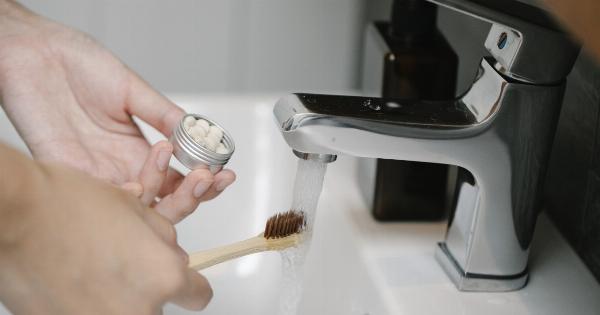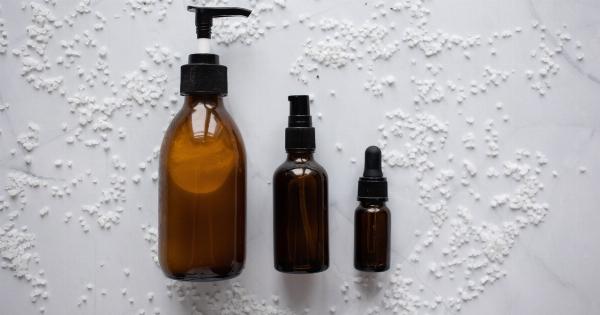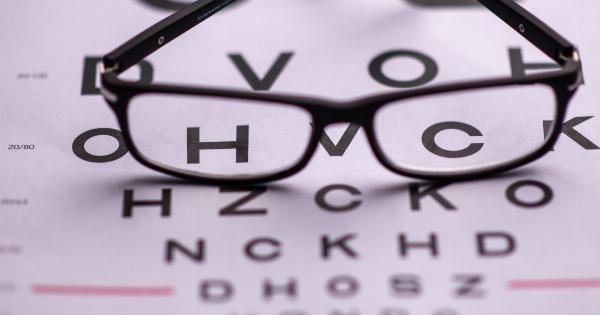Fluid retention, also known as edema, is a condition characterized by the accumulation of excess fluid in the body tissues. It can affect various parts of the body, such as the hands, feet, ankles, and legs.
Fluid retention may cause swelling and discomfort, and can be a sign of an underlying health condition. In this article, we will explore the causes of fluid retention and discuss ways to manage and prevent it.
What is Fluid Retention?
Fluid retention occurs when there is an imbalance in the fluid levels in the body. Normally, the body maintains a delicate balance of fluid, electrolytes, and proteins.
However, certain factors can disrupt this balance, leading to the buildup of fluid in the tissues. Edema can be classified into two types: generalized edema and localized edema.
Causes of Fluid Retention:
There are multiple causes of fluid retention, ranging from lifestyle factors to underlying medical conditions. Understanding the root cause is crucial for effective treatment and management. Here are some common causes of fluid retention:.
1. Poor Diet:
A diet high in sodium and processed foods can contribute to fluid retention. Sodium causes the body to retain water, leading to swelling and bloating. An excessive intake of salty snacks, fast food, and canned goods can exacerbate fluid retention.
2. Dehydration:
Paradoxically, dehydration can also cause fluid retention. When the body is dehydrated, it holds onto water as a protective mechanism. This retained water can accumulate in the tissues, leading to edema.
It is important to stay adequately hydrated to prevent fluid retention.
3. Hormonal Changes:
Hormonal fluctuations, particularly during the menstrual cycle, can cause fluid retention in women. This is due to changes in estrogen and progesterone levels, which affect fluid balance in the body.
Many women experience bloating and swelling in the days leading up to their period.
4. Medications:
Certain medications, such as corticosteroids, nonsteroidal anti-inflammatory drugs (NSAIDs), and some blood pressure medications, can cause fluid retention as a side effect.
If you suspect your medication is contributing to edema, consult your healthcare provider for alternative options.
5. Sitting or Standing for Prolonged Periods:
Sitting or standing in one position for an extended period can lead to fluid accumulation in the lower extremities. This is commonly seen in individuals who have sedentary jobs or spend long hours on their feet.
Regular movement and leg exercises can help prevent fluid retention associated with prolonged sitting or standing.
6. Liver or Kidney Disease:
Severe fluid retention can be an indicator of underlying liver or kidney disease. These organs play a crucial role in maintaining fluid balance in the body.
Dysfunction in the liver or kidneys can impair their ability to remove excess fluid, leading to edema.
7. Heart Conditions:
Heart conditions, such as congestive heart failure, can cause fluid retention. When the heart is unable to pump blood effectively, fluid can accumulate in the tissues. This often leads to swelling in the legs, ankles, and abdomen.
8. Pregnancy:
Fluid retention is common during pregnancy, especially in the later stages. Hormonal changes, increased blood volume, and pressure on blood vessels by the growing uterus can all contribute to edema.
It is important to differentiate normal pregnancy-related fluid retention from potential complications, so regular prenatal care is essential.
9. Inflammation and Infection:
Inflammatory conditions, such as arthritis, and infections can cause fluid retention as part of the body’s response to injury. Inflammation and infection can disrupt the normal fluid balance, leading to localized or generalized edema.
10. Lymphatic Issues:
The lymphatic system plays a crucial role in fluid drainage and immune function. If there is an obstruction or dysfunction in the lymphatic vessels or nodes, fluid can accumulate in the tissues.
This often results in swelling and can contribute to fluid retention.
Managing and Preventing Fluid Retention:
While treating the underlying cause is essential for managing fluid retention, there are some general strategies that can help alleviate symptoms and prevent further fluid accumulation. Here are some tips:.
1. Reduce Sodium Intake:
Avoiding processed foods, fast food, and excessive salt can help decrease fluid retention. Opt for fresh fruits, vegetables, lean proteins, and whole grains instead.
2. Stay Hydrated:
Drink enough water throughout the day to maintain proper hydration. This helps prevent the body from holding onto excess water.
3. Exercise Regularly:
Engaging in regular physical activity can improve circulation and prevent fluid buildup. Focus on exercises that promote movement in the affected areas.
4. Elevate Affected Limbs:
If you experience localized edema in the legs or ankles, elevating the affected limb above heart level can help reduce swelling. This encourages fluid drainage.
5. Wear Compression Garments:
Compression stockings or sleeves can help improve circulation and prevent fluid accumulation in the legs or arms.
6. Avoid Prolonged Sitting or Standing:
If your lifestyle involves long periods of sitting or standing, take regular breaks to walk around and stretch your legs. This helps prevent fluid retention in the lower extremities.
7. Manage Stress:
Stress can contribute to fluid retention, so finding healthy ways to manage stress, such as meditation or exercise, can be beneficial.
8. Follow a Healthy Diet:
Eating a balanced diet rich in fruits, vegetables, whole grains, and lean proteins can help support overall health and minimize fluid retention.
9. Monitor Medication:
If you suspect that your medication is causing fluid retention, consult your healthcare provider for alternative options. Do not stop or adjust your medication without medical advice.
10. Seek Medical Advice:
If you experience persistent or severe fluid retention, it is important to seek medical advice. A healthcare professional can evaluate your symptoms, assess the underlying causes, and provide appropriate treatment.






























